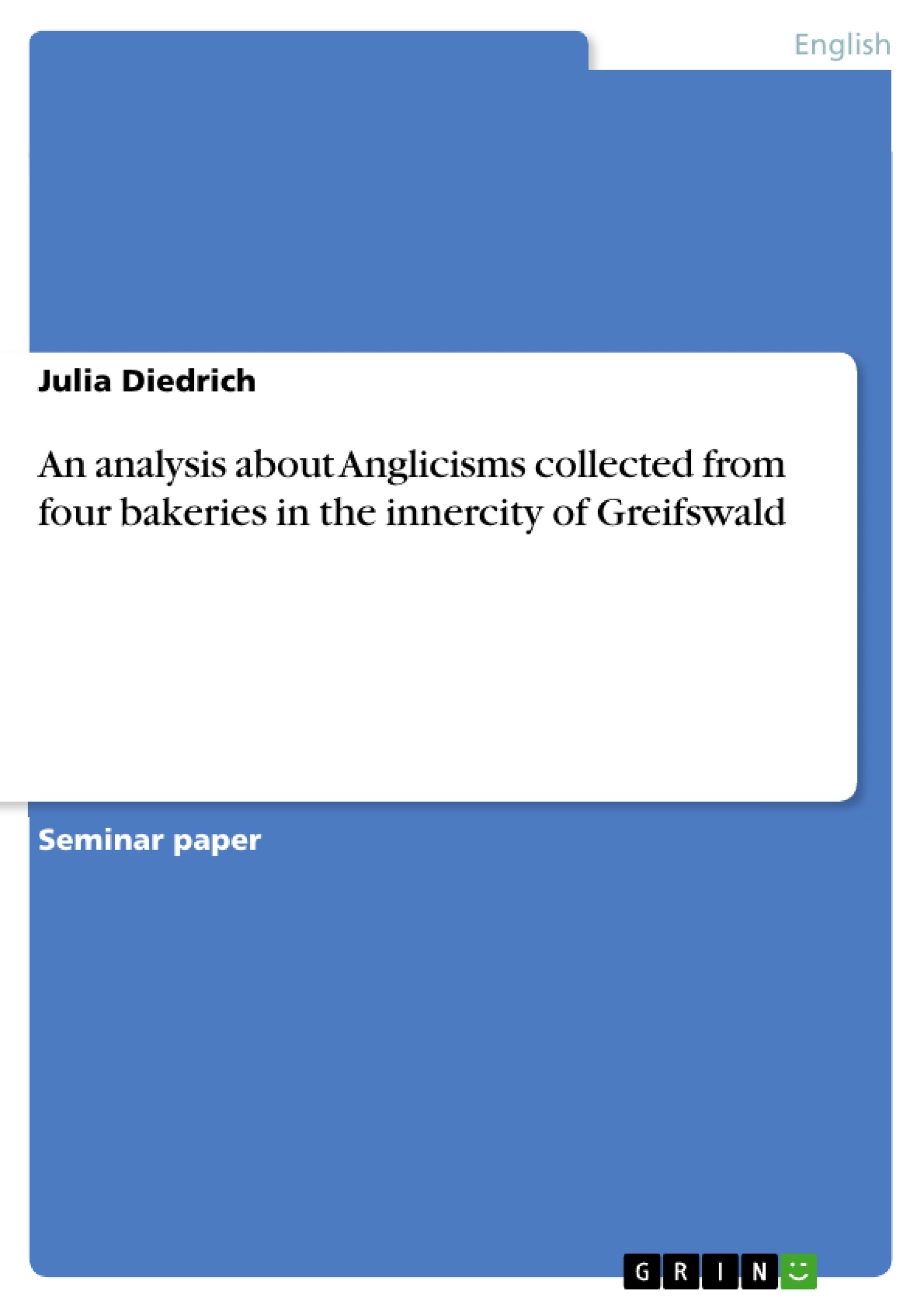Since the 1960´s the increase of anglicisms in the German language can be recognised and since the 1990´s it strengthened even more.
The reasons for that are obvious: It is the economical, technological, military and cultural domination of the United States and Anglo-Saxon speech communities all together.
This domination is very remarkable in the fields of media, technology and the film industry. That is why anglicisms are found especially in those fields which bring or brought technological innovations into everyday life: the information technology (computer), the service area (autoleasing), the leisure industry (Trendsportarten) and the culture of the youth (Popmusik) whose taste of music and way-of-life is coined predominant by English-speaking areas. Until now there is a large number of papers and books written about the English influence on the German language, for example Broder Carstensen, Werner Betz, Manfred Görlach, René Appel and Pieter Muysken, to name just a view.
In my paper I don´t want to write about anglicisms of the fields mentioned above.
The task of this written assignment was to analyse in what respect anglicisms appear in Greifswald´s bakeries: For this I will, first of all, define the term anglicism from a linguistic perspective, and I will give an overview of the processes of adopting words with all their distinctive and characteristic features in their formation. For this I will go into terms like loanword and foreign word. This theoretical framework will help me to analyse afterwards the practical examples which I collected from four bakeries in the inner-city of Greifswald (namely: Backfactory, De Mäklenbörger, Marckwardt and Stadtbäckerei Junge).
Inhaltsverzeichnis (Table of Contents)
- 1. Introduction
- 2. Main part
- 2.1. Anglicisms
- 2.2. Classification
- 2.2.1. Forms of linguistic transfer
- 2.2.1.1. Borrowings
- 2.2.1.2. Replacement
- 2.2.1.3. Pseudo-Loans
- 2.2.1.4. Other important terms
- 2.2.2. Linguistic levels
- 2.2.2.1. Pronunciation
- 2.2.2.2. Spelling
- 2.2.2.3. Morphology
- 2.2.2.4. Meaning
- 2.2.1. Forms of linguistic transfer
- 2.3. Analysis
- 2.3.1. Borrowings
- 2.3.2. Pseudo-loans
- 2.3.3. Other hybrid formations
- 2.3.4. Blendings
- 2.3.5. Other formations
- 3. Conclusion
Zielsetzung und Themenschwerpunkte (Objectives and Key Themes)
This paper aims to analyze the prevalence and characteristics of Anglicisms within the German language, specifically in the context of bakeries in Greifswald. The analysis will use a linguistic framework to explore the adoption and adaptation of English words into German, providing insights into the influence of English on German language usage. Key themes explored in this paper include:- The definition and development of the term "Anglicism"
- The processes of linguistic transfer and the different categories of Anglicisms
- The influence of English on German vocabulary and its impact on everyday language use
- The analysis of Anglicisms in specific contexts - bakeries in Greifswald
Zusammenfassung der Kapitel (Chapter Summaries)
The introduction highlights the increasing presence of Anglicisms in German since the 1960s, attributing this trend to the cultural and technological influence of English-speaking countries. The paper focuses on analyzing Anglicisms in Greifswald bakeries, providing a linguistic framework for understanding the process of borrowing English words. The main part of the paper defines the term "Anglicism," tracing its historical development and providing different linguistic perspectives. The paper then explores the classification of Anglicisms through categories such as borrowings, replacements, and pseudo-loans. This classification provides a theoretical framework for analyzing the practical examples collected from the bakeries.Schlüsselwörter (Keywords)
This paper focuses on the study of Anglicisms, linguistic transfer, borrowing, replacement, pseudo-loans, linguistic levels, pronunciation, spelling, morphology, meaning, and their influence on the German language, specifically in the context of Greifswald bakeries.Frequently Asked Questions
Why has the number of anglicisms in German increased since the 1960s?
The increase is primarily due to the economic, technological, military, and cultural dominance of the United States and other English-speaking communities, especially in media and technology.
What is a "pseudo-loan" in linguistics?
A pseudo-loan is a word that looks like English but does not exist in English with that meaning, or was created within the German language using English elements (e.g., "Handy").
How are anglicisms classified at different linguistic levels?
Anglicisms can be analyzed based on their pronunciation, spelling, morphology (word structure), and meaning within the target language.
What did the study find regarding Greifswald's bakeries?
The paper analyzes examples from bakeries like Backfactory and Junge to show how English terms are used for marketing, product names, and service descriptions in everyday settings.
What is the difference between a loanword and a foreign word?
A foreign word retains its original spelling and pronunciation, while a loanword is more integrated into the German language's grammar and phonetic rules.
- Arbeit zitieren
- Julia Diedrich (Autor:in), 2006, An analysis about Anglicisms collected from four bakeries in the innercity of Greifswald, München, GRIN Verlag, https://www.grin.com/document/189298



